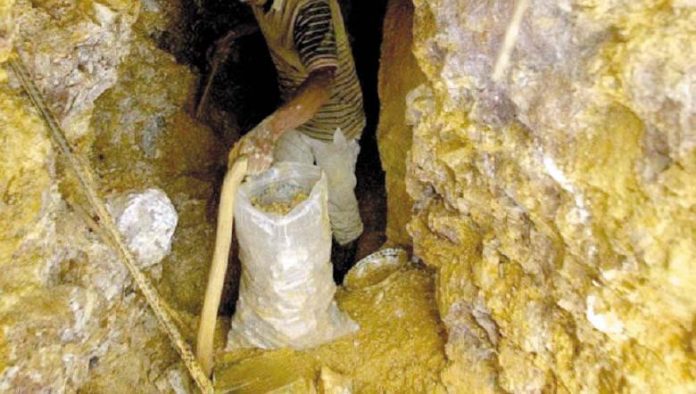Emirati occupation forces have reportedly intensified their armed control over gold mines in western Mukalla, the capital of Hadramout province. This move comes as dozens of tribal members in neighboring Shabwah province staged protests demanding information on the fate of their forcibly disappeared relatives held in Emirati-affiliated prisons.
Yesterday, the UAE forces, headquartered at Riyan Airport, deployed armed militias from the “Barashid Brigade,” led by Abdul Daem Al-Shuaibi, to Wadi Al-Maseeni and surrounding towns. The objective was to solidify their grip on gold mines, extending their reach to the gold-rich Mayfa’a Hajar mountains. In recent months, the UAE forces have also brought in scores of armed elements from transitional militia camps in Aden, Al-Dhale, and Lahj.
The UAE has established control over approximately five gold mines in Hadramout, including the Al-Nuteisha mine in Wadi Madan, west of Mukalla. Al-Nuteisha is considered Yemen’s largest gold mine. The Emirati presence in these areas, dating back to 2016, has been justified under the pretext of combating terrorist elements.
Reports indicate that the UAE is transporting raw gold ore from mines near the Hadramout coast via Mukalla port to its factories. Specific percentages are allegedly allocated to certain loyal leaders, after which the gold is smelted and sold on Dubai exchanges. This process reportedly yields no significant returns that contribute to improving Yemen’s economic situation.
Meanwhile, in the oil-rich Shabwah province, dozens of members of the Laqmoush tribes held a protest demanding information on their sons who have been forcibly disappeared in prisons operated by the Emirati-affiliated Transitional Council in Aden since April 2016.
During their demonstration in Habban district, the Laqmoush tribesmen carried banners demanding the release of the sons of Sheikh Saeed Maqdah Al-Qamishi, who are among those forcibly disappeared in Transitional Council prisons. They also condemned the dire living conditions, deteriorating services, and persistent electricity outages.
The protesters accused Emirati-affiliated authorities of marginalizing the district’s residents, depriving them of basic services and necessities. They also criticized the authorities for failing to follow up on the ongoing forced disappearances of Al-Qamishi’s sons.
Concerns were raised about the whereabouts of Shabwah’s oil revenues, especially with the continued non-payment of teachers’ salaries. Teachers have been demanding their rights and have announced a comprehensive strike at the beginning of the new academic year.


















